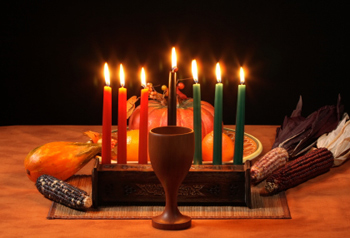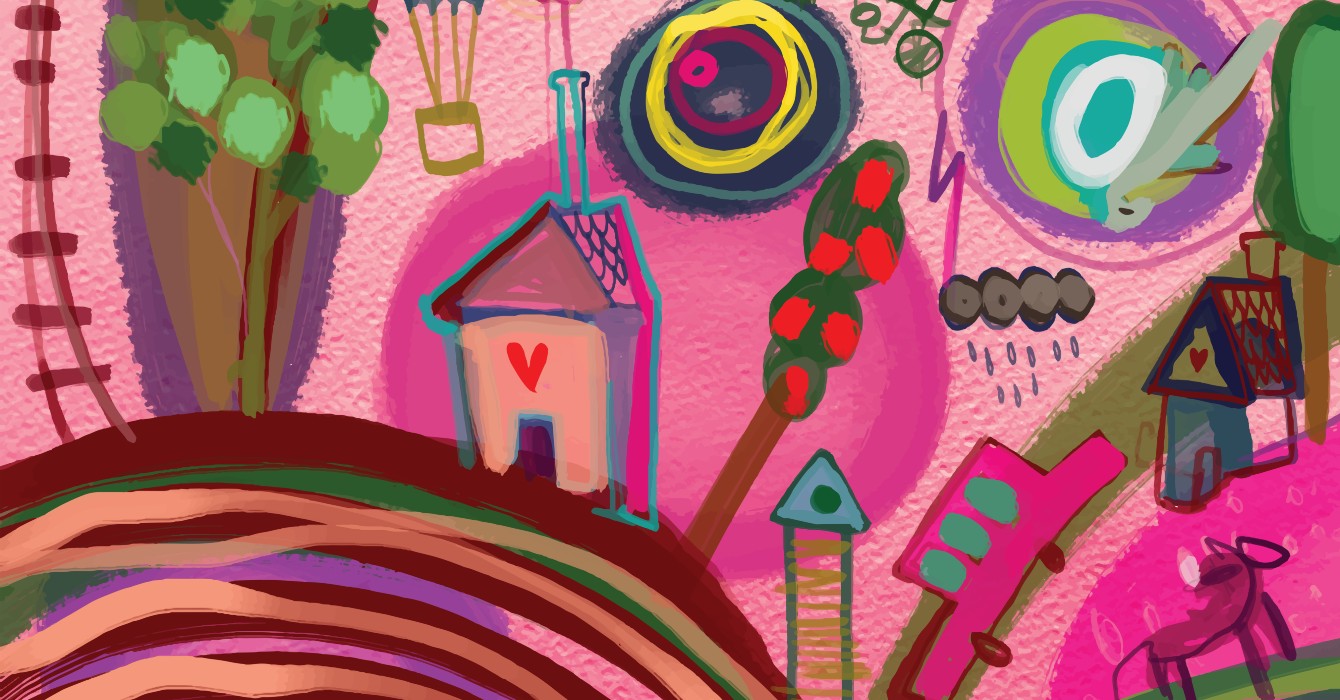All my life, Kwanzaa has been part of my holiday season. When I was growing up, my parents would pull out the Kwanzaa items as soon as we started putting up Christmas decorations. A table full of the fruits of the harvest, such as corn and squash, sat near the tree.
Starting Dec. 26, friends and family would gather for seven nights while we lit the kinara, the seven-branched candelabra. Many of my mother’s nine siblings would come over and, in keeping with the African oral tradition, we’d talk about the significance of the seven principles represented by the candles.
My parents decided to celebrate Kwanzaa when I was 11 months old after attending a Kwanzaa celebration at Howard University led by Maulana Karenga, the professor who had created the holiday in 1966.
Karenga developed Kwanzaa to create a holiday that would uphold, educate and empower people of African descent. He based Kwanzaa on the African tradition of the harvesting of the first fruits -- a celebration that commemorates the year’s gifts and reaffirms the people’s cultural and communal identity. It’s not clear how many people celebrate Kwanzaa today, but many put the number in the millions.
It made sense to my parents to include Kwanzaa as part of our holiday observance. They are committed Christians: my mother now is an AME pastor; my father grew up in the Church of God.
They were also activists -- my mother served on the NAACP national board of directors as youth representative at the age of 16 -- and they felt it was important to cultivate a sense of pride and history in their only child.
Over the years, my family has added its own twists to the tradition. When I was 3, I accidently set my hair on fire while lighting a candle. I wasn’t hurt, and the incident is now part of our family lore -- and teasing me about it has become part of our annual ritual.
In 2004, my mother, as minister of youth and young adults, introduced the celebration of Kwanzaa at Metropolitan AME Church in Washington, D.C. When I visited this year, I was honored to see that the church has continued to put up a Kwanzaa display. (I did not have as much success trying to include Kwanzaa in the holiday display at my high school, however.)
Kwanzaa is a secular, cultural holiday, but it has enriched my faith and spiritual development. I can’t remember a Christmas without Kwanzaa; the two go hand in hand in my family.
Having lived the tradition of Kwanzaa has helped me extend my understanding of the holiday season beyond the idea of the “perfect gift.” This helps me in my Christian journey as I try to limit my desire to buy into the cultural pressures surrounding the Christmas season.
Instead, I seek to spend more time with my loved ones and take part in service activities instead of eating all day. This season calls me to assess my impact on my community, my contributions to my neighborhood and my willingness to foster unity among people.
There’s a Swahili principle for each day of the holiday, representing the best aspects of African culture. The seven principles are umoja, unity; kujichagulia, self-determination; ujima, collective work and responsibility; ujamaa, cooperative economics; nia, purpose; kuumba, creativity; and imani, faith.
Observing these principles has given me a better understanding of my own history as an African American of Jamaican heritage. Our history is often associated only with the trans-Atlantic slave trade, and the positive connection between African origins and the present African diaspora has been lost. Kwanzaa is a time to celebrate the origins of our people so we can use the past as a way to improve the future.
Understanding this history is important, just as it’s vital that young people understand the history of our denomination, which was created because our people were not allowed to pray. It’s important that our history be continually told.
Kwanzaa affirms differences within us as human beings, yet seeks to bring together people in common experience.
Today, as a seminary student planning to go into ministry, I see that the emphasis of unity in Kwanzaa has supported my ability to live out my Christian beliefs in understanding and accepting others. It has allowed me to know my own worth, my uniqueness as a person of African descent and my value as a child of God striving to create unity among God’s people.
As we celebrate “Jesus as the reason for the season,” we also celebrate family, community and unity. As we begin a new year and reflect on how we can improve in both our professional and our personal lives, we must remember, as we continue in our ministries, that we are not alone.
That’s why every year we invite a new family or friend into our celebration of Kwanzaa. This allows us to share our tradition and practices with others who may not be familiar with them.
As we lit the candles during this year’s celebration and selected the fruits representing the harvest, we lived in unity, praying, reflecting and celebrating the goodness of God in all of life’s seasons.









